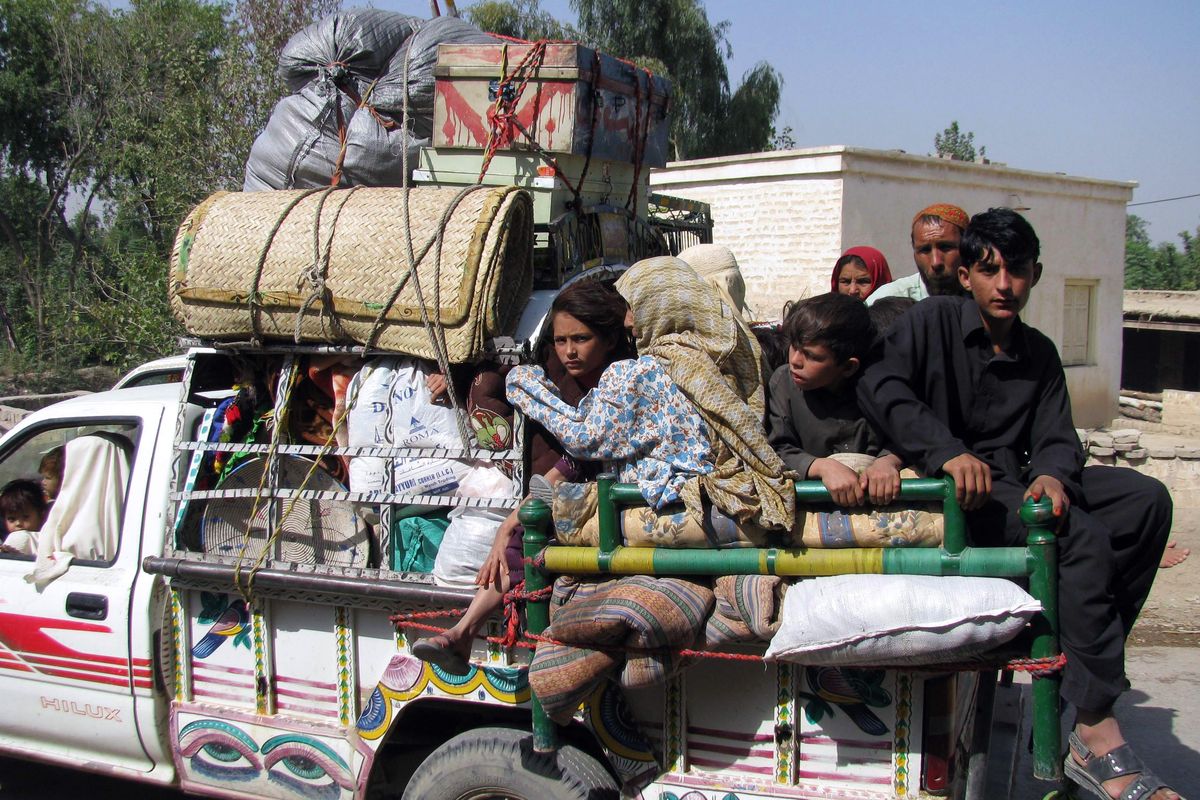Pakistan cuts deal with anti-U.S. tribes
Factions agree to stay out of battle with Taliban

DERA ISMAIL KHAN, Pakistan – Pakistan’s army, in the midst of a major new offensive against Taliban militants, has struck deals to keep two powerful, anti-U.S. tribal chiefs from joining the battle against the government, officials said Monday.
The deals increase the chances of an army victory against Pakistan’s enemy No. 1, but indicate that the three-day-old assault into the Taliban’s strongholds in South Waziristan may have less effect than the U.S. wants on a spreading insurgency across the border in Afghanistan.
Under the terms agreed to about three weeks ago, Taliban renegades Maulvi Nazir and Hafiz Gul Bahadur will stay out of the current fight in parts of South Waziristan controlled by the Pakistani Taliban. They will also allow the army to move through their own lands unimpeded, giving the military additional fronts from which to attack the Taliban.
In exchange, the army will ease patrols and bombings in the lands controlled by Nazir and Bahadur, two Pakistani intelligence officials based in the region told the Associated Press on condition of anonymity because revealing their identities would compromise their work.
Western officials say South Waziristan is also a major sanctuary and training ground for al-Qaida operatives. The mountain-studded region has been under near-total militant control for years and is considered a likely hiding place for Osama bin Laden.
The United States has responded cautiously to the initial Pakistani strategy, publicly welcoming the offensive but saying little about the specific choice of targets.
Because the faction loyal to Taliban leader Hakimullah Mehsud poses the most direct threat to the Pakistani government and army, it is the logical first target, U.S. officials briefed on the offensive said.
While a broad offensive that takes on all comers at once might be ideal, it is not practical, U.S. military officials said. They spoke on condition of anonymity because the United States has no direct role in the operations of another country.
U.S. officials are watching the offensive closely with the hope that the Pakistani army will not pull back after the initial onslaught, and will eventually widen the offensive to cover other militant factions and the more forbidding ground of North Waziristan.
The army’s offensive in South Waziristan is pitting some 30,000 troops against 11,500 militants belonging to the Pakistani Taliban, an umbrella grouping of the country’s main militant factions blamed for 80 percent of the attacks in this nuclear-armed nation over the last three years.
The Taliban have claimed responsibility for a surge in strikes over the past two weeks that has killed more than 170 people. The attacks have included a 22-hour siege of the army headquarters and a bombing of the U.N. building in the capital, Islamabad.
The army said Monday that troops backed by aerial bombing were steadily advancing on three fronts into the region and meeting stiff resistance in places. It said 78 militants and nine soldiers were killed over the last three days. Militants were not available for comment, but said Sunday they had the upper hand.